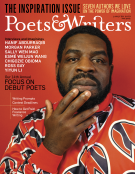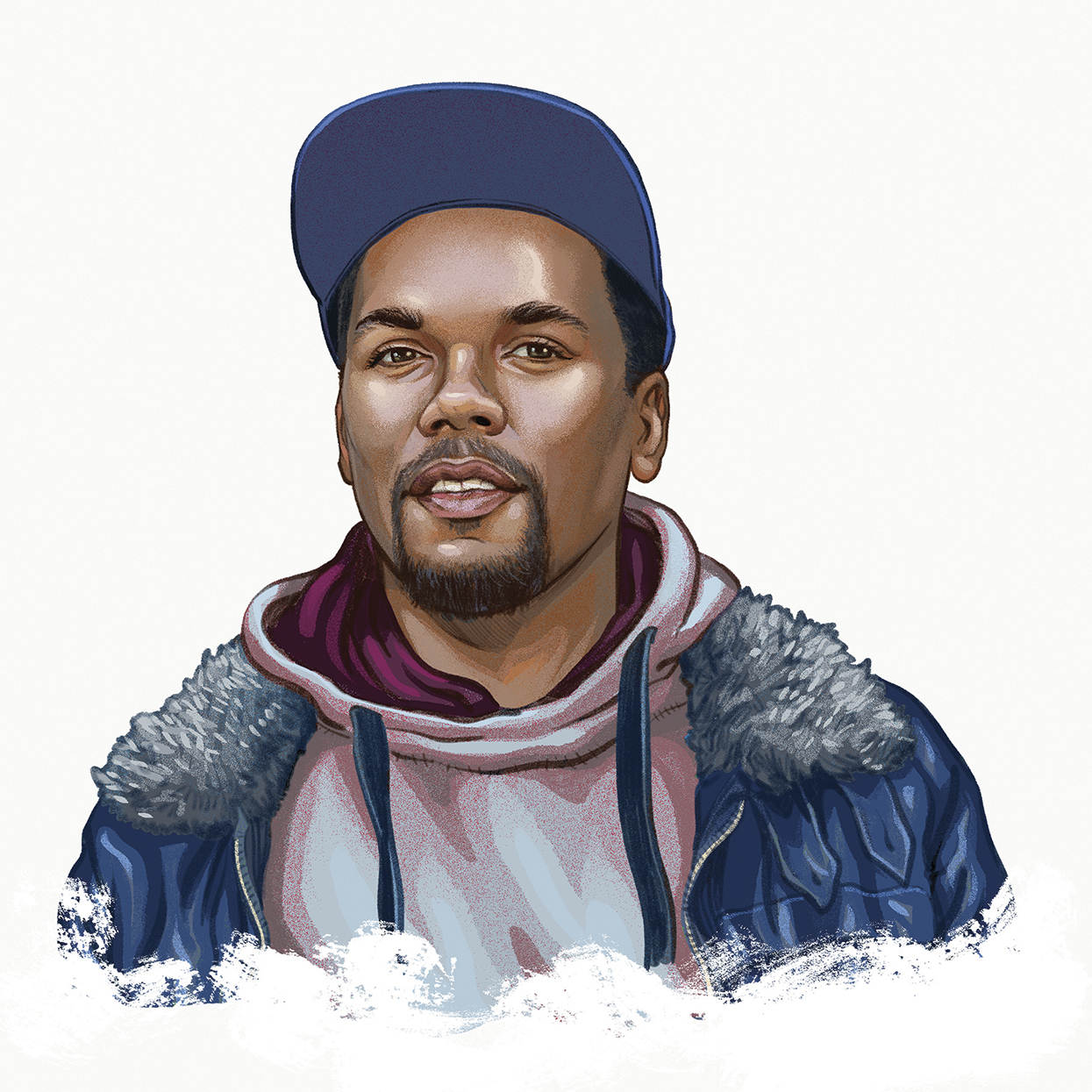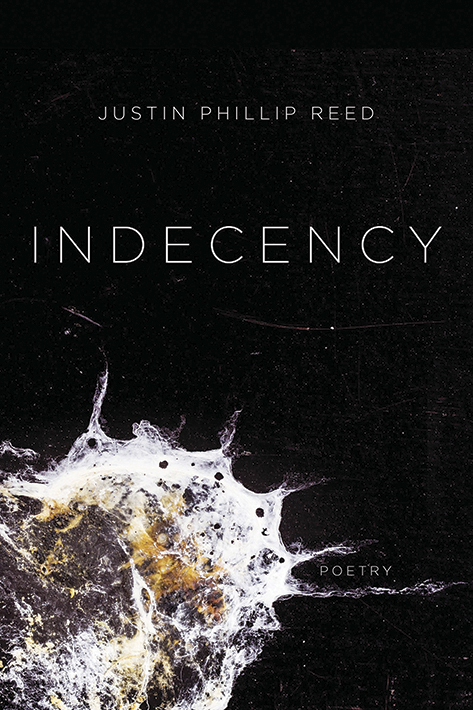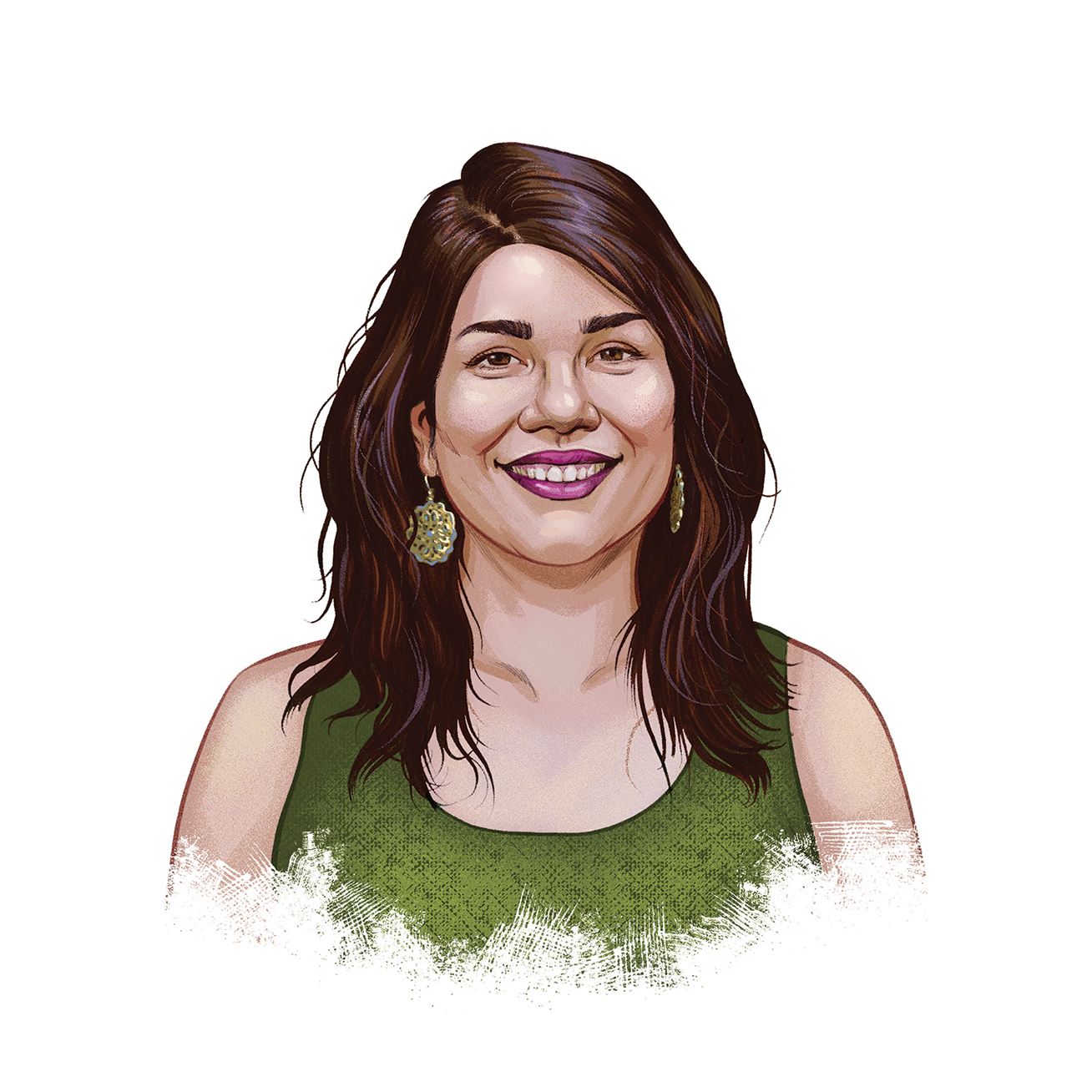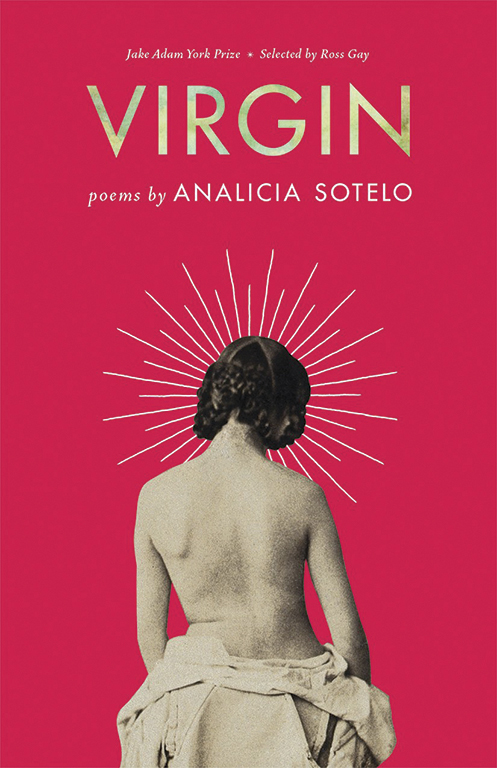Justin Phillip Reed
Indecency
Coffee House Press
their whole heavy tongue slack
in my own throat, opiate-slow.
—from “Anesthesia Is a Country You Leave for America”
How it began: It didn’t exist yet. I don’t mean that to be snide or dismissive. I wrote the poems in Indecency because I had not found them elsewhere. I needed text to represent and then transform the way that my body and my many iterations of self move through my life and its various environments.
Inspiration: It’s difficult to whittle this down, as I welcome inspiration from almost everything I encounter. I’ve been prompted to write by social-media posts, news articles, sculptures, paintings, songs, and films (with poems in direct conversation with Alien, Queen of the Damned, The Hitcher, The Witch, and a few porno clips). Most reliably my inspiration has come through reading literature, including essays, novels, and plays, in addition to poetry collections. I’ve found venturing out of my living space and spending time among natural landscapes to be an invaluable, productive practice. My local parks and rural landscapes have probably yielded most of the poems in my current manuscript-in-progress.
Influences: This may be quite a catalogue of shoutouts. My teachers, of course: Carl Phillips, Mary Jo Bang, Wayne Thomas, Heather Elouej, Desirae Matherly, and Clay Matthews, to name a few. The writers—friends and peers among them—Dawn Lundy Martin, Douglas Kearney, CM Burroughs, Claudia Rankine, Timothy Donnelly, Frank Bidart, francine j. harris, Khadijah Queen, Blair Johnson, Harryette Mullen, James Baldwin, Jericho Brown, Essex Hemphill, Phillip B. Williams, Rickey Laurentiis, Jonah Mixon-Webster, and Jayson P. Smith. In my most recent work, I see the influences of Jorie Graham, Gwendolyn Brooks, Robert Hayden, Jay Wright, Wallace Stevens, Federico García Lorca, and others. Quiet as it’s kept, I’ve been heavily influenced by the band Deftones and Chino Moreno’s lyrics, as well as music by Marilyn Manson, From First to Last, and—perhaps less quietly—the moods of Radiohead and Massive Attack.
Writer’s block remedy: I revise, and I engage the work of other artists in various genres and media. From the friction between these two acts emerges the magnetism of new work, typically. What keeps me going is a conflict of awe and disappointment. Either I’m writing a poem that I’m sorry to have never read or written before, and/or I’m writing toward a feeling of dumbstruckness—sometimes to construct a similar feeling (the “inspiration”), and sometimes to create a sensation that doesn’t elsewhere exist in my life. I’m not terribly invested, though, in the idea of impasse. I can pass, and I prefer to—to write beyond where I expected to land in the lyric.
Advice: Be patient and respect your instincts. Write the book you never expected to have in you. Contest judges and publishers, if they are right for you, can wait for that. Take time away from your manuscript and return with renewed energy. Recruit a few invested readers of your work—not many—and hear their feedback. Remember that you’re creating an artwork with which you will, fortunately, have to live. Aspire to a consistent book of poems where each poem puts in work and not for a handful of collections from which only a few poems apiece, if that, emerge. I will attempt to do the same.
Finding time to write: I don’t write consistently, and I certainly don’t write on a set schedule. I was taught that I should write every day, and while I think I do this in many forms, my practice doesn’t include carving out a piece of each day to sit down and attempt a poem. I try to carry my notebook with me everywhere I go, even when I know I won’t open it. My poems typically arrive in seasons. For a few months, I will write a poem every other day; it’s an ecstatic experience, and I live for it. But in the time between those seasons, I acknowledge that each moment has the potential to lodge a parcel of poetry in my mind and body—be it an image, an utterance, a somatic response, a gesture, or a sound.
Essays, though, are a different matter. When I write them, I write feverishly. Essaying finds me in a tenuous state because I’m liable to ignore such necessities as meals and regular sleep, to be late for work or distracted while there, and to grasp for my vices. While I welcome a poem to unravel from the edge of a dream and wake me up, I find a good deal of stress in how unavailable I become to myself when researching for and writing an essay. I sort of resent the possessive gravity of essaying. There’s a want for grace in it.
Putting the book together: I let a more imaginative, intelligent, and prolific writer, Khadijah Queen, arrange it according to her experience of the poems. The order became a matter of resonance, a sort of ambulance effect of subjects and images. Also, people have asked me why Indecency has no section breaks: I wrote the book during a clearly intentional barrage of state-sanctioned murders of Black people and in a state of personal exhaustion—physical, emotional, spiritual. I wished to simulate that in the object itself, as much as it was possible. There is little pause. The onslaught is reciprocal.
What’s next: My sophomore collection of poems, at least three essays, my intuition, surviving winter, and the understanding that I’m worthy of a lot and am entitled to nothing.
Age: 29.
Residence: Saint Louis.
Job: An assortment of things that don’t include “gain exposure” and do include making art. I work as a server. I lead community poetry workshops when the time is right. I visit universities to deliver readings and lectures. I publish essays. I sometimes win monetary awards for my writing. All of these contribute in some way to subsidizing my living costs. In my mind, I live to write and to read and discuss writing, so what I do for a living is done to protect and enhance that particular livelihood. It’s largely a lesson in patience and intuition.
Time spent writing the book: In my body? My whole life. On paper? Let’s say three years. While I produced the majority of the poems as part of, or at least during, the creation of my MFA thesis, I like to think that they’ve been coming along for many years, reinterpreting here and there previous lived experiences and struggling for language to articulate feelings I’ve known for much longer than I’ve written poems.
Time spent finding a home for it: According to my personal publication datasheet, I started sending out drafts of the manuscript that would become Indecency in Fall 2014, which would leave a little over a year until I was in conversation with Coffee House Press. In that brief time, it was rejected on at least seven occasions—which, I understand, is relatively slight. Honestly, I felt during that time a distinct paranoia that I would be shot by police or similarly dispatched or driven to an otherwise ill fate before the book would meet the world. I am not exaggerating. This anxiety spurred me to spend much of my time trying to ensure its publication, and it is not an energy that I miss. I wish the circumstances had been different, but of course I would have written a different book.
Recommendations for debut poetry collections from this year: I didn’t read many debuts in 2018 while I allowed myself some space to gain productive distance from the inundating business of contemporary poetry. I wanted to better understand my voice and art as part of a continually unfolding lineage, ancestral and otherwise. Perhaps this is somewhat irresponsible, given how fortunate I am that Indecency has enjoyed such graceful and careful readership in the year of its release, but I also have hope that someone will read it years from now and welcome it then. Likewise, there are debuts stronger than my own that I look forward to experiencing in the future; good reading is timeless. That said, Sons of Achilles (YesYes Books) by Nabila Lovelace is an astounding arrival and deserves your attention. Lovelace is incomparably generous and perceptive, and I’m lucky to live and write in her lifetime.

Analicia Sotelo
Virgin
Milkweed Editions
(Jake Adam York Prize)
My veil is fried tongue & chicken wire,
hanging off to one side.
I am a Mexican American fascinator.
—from “Do You Speak Virgin?”
How it began: All I thought about when writing this book was whether the poems were honest in their investigations. While there are many poets I love, I don’t always think of their collections as a whole. I think instead of beautiful, sonic, individual poems and strong lines. I like it when a poem visits me unexpectedly while I’m doing the dishes or sitting around trying to figure out a feeling. There’s an emotional connection that a good, powerful poem can make across timelines and spaces. I often think there is so much more to that poem than the poet who originally wrote it. I think a poem is sometimes a conversation that was so powerful it was meant to continue.
With this collection I tried to honor the power that language carries by writing first, then seeing what might go together. I like to explore the feelings between feelings, the relationships that aren’t exactly linear. That led me to an anachronistic project through which I wrote from the perspective of a young woman trying to understand love, loneliness, and desire. At times Greek myth, Victorian life, and the Southwestern landscape all arrived in the same poem. I was questioning what has changed and not changed about the power dynamics of relationships. The book shaped itself in the spirit of that transformation.
Inspiration: How a delicious, quiet dinner can make a conversation with a friend go on for hours until, by the end of it, life seems a little nicer. The titles of most surrealist works. Bodies of water. Art nouveau. Thrift shops. Victorian curiosities. Old love songs. New love songs.
Influences: Elizabeth Bishop, Larry Levis, Louise Glück, Sharon Olds, Jack Gilbert, Franz Wright, Dorothea Lasky, Sylvia Plath, Anne Carson, Lorrie Moore, Andre Dubus, Walt Whitman, Herman Melville. In music: Janelle Monae, Lianne La Havas, Corinne Bailey Rae. Stephen Sondheim, Rodgers and Hammerstein, Cole Porter, Bill Evans, or any of the old-timey love songs that are irresistible even now. All the ones obsessed with longing. In visual art, everyone. Clyfford Still, Marc Chagall, René Magritte, my mom.
Writer’s block remedy: I’ve decided I don’t always have to be writing. I let myself live and try to let go of the pressure to always physically write. In some ways it feels like I’m collecting feeling. That’s not to say I don’t sit down and try regularly to get something on the page, but it might not look like a poem. It might look like writing in a journal about what I’ve seen and heard that day. That process helps me feel more willing to listen to what’s possible rather than predetermine what I think I should be on the page.
Advice: Try to write authentically and read as much as possible; make notes on all of your favorite first books, and love poems more than publishing. Love poems.
Finding time to write: I try to leave every Saturday morning and early afternoon open to reading and thinking. On a good week, I wake up early and make coffee. Then I wait awhile, and I wake up to the world and try.
Putting the book together: At first, I tried to organize the poems as if they were emotional waves. I ate a lot of dark chocolate and drank copious amounts of black tea. I showed the poems to a couple of people, but they were sitting a little flatly next to each other, all the poems about heartbreak stacking on top of one another with very little breathing room. I read books and more books, and I thought about how I admire when a poet’s book has an overall form that gives their poems some space for me to absorb them. When I reordered Virgin, I was doing something labyrinthine. Each section is a path, with the poems in “Pastoral” leading into the poems in “Parable,” and then “Myth,” and so on. I wanted the reader to feel a little lost, but always aware of where they were, just as Ariadne leads Theseus through the maze of himself, only to find herself needing to articulate what it means to love someone that way.
What’s next: I’ve been playing with nonfiction and fiction, as well as some new poems. I feel very superstitious about it all. My dad taught me one of my favorite clichés: “Don’t talk about the cake before it’s done.” It is one of the only clichés I have allowed myself to love, perhaps because I really do love most kinds of cake. But to give a hint and break the adage: I’m interested in color right now. Color and light.
Age: 32.
Residence: Houston, Texas.
Job: I work in communications, marketing, and development at a nonprofit.
Time spent writing the book: Seven years. Some poems took seven years of relentless tinkering, some took a few months, and some closer to a week. There were many things in between the drafts, like work and school and relationships. I have so many other drafts I never finished or published that are early versions of these, all in pieces. They’re a mess, but an important mess, because they show me how hard I was on myself, trying to get the poems just right, while not actually being honest with myself or even really enjoying the writing. I needed to trust myself to intuit my way through the process. After I started tuning in that way, it came together pretty quickly.
Time spent finding a home for it: I think I sent out the manuscript for a couple of years, while continually revising before it was chosen by Ross Gay for the Jake Adam York Prize run by Copper Nickel and Milkweed Editions. I had convinced myself it could take up to five years to get the book placed, and that I would write and rewrite it until I found a home for it.
Recommendations for debut poetry collections from this year: I enjoyed Eye Level (Graywolf Press) by Jenny Xie.







